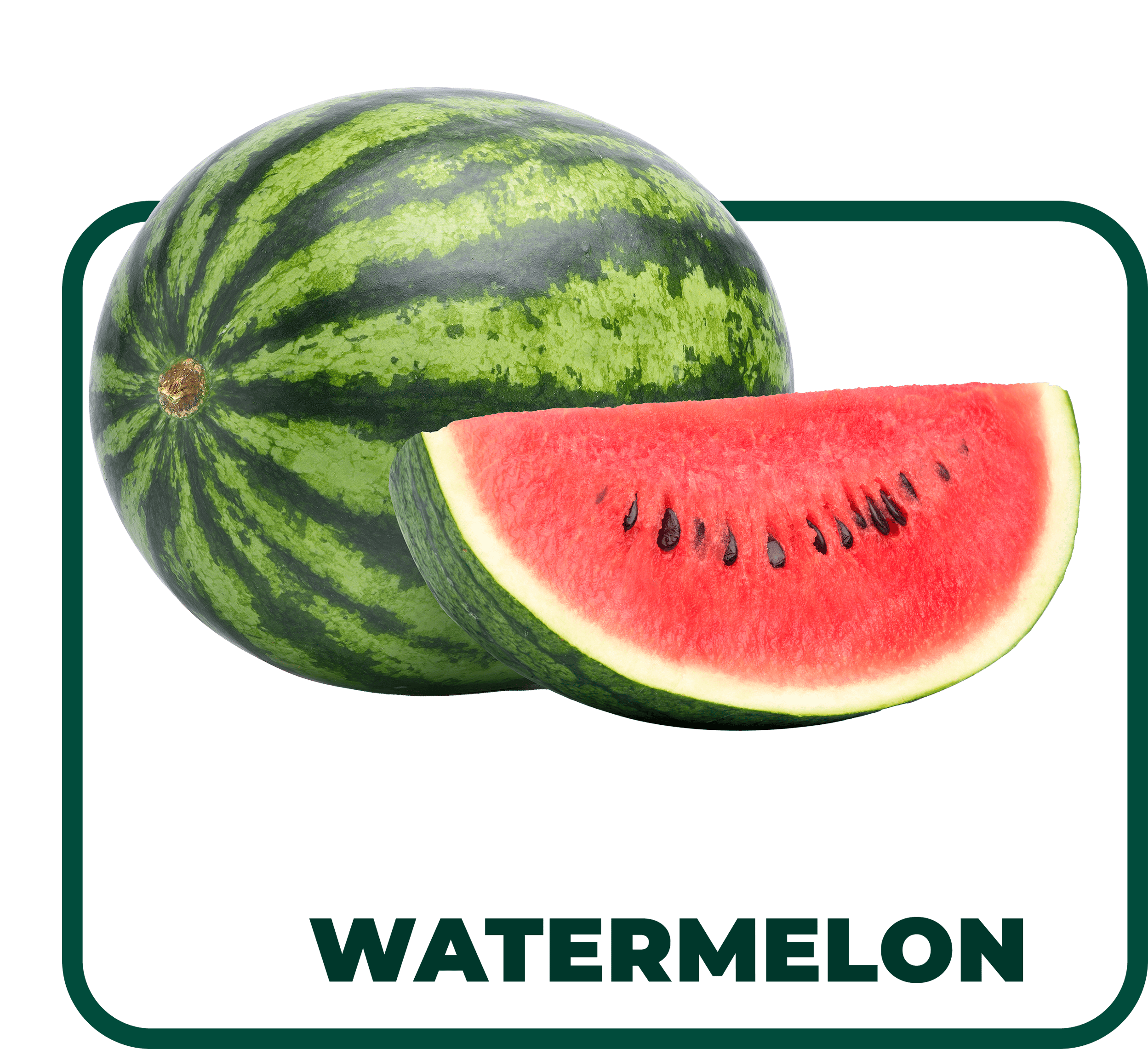
Watermelon
Egyptian watermelons are a beloved summer fruit known for their vibrant red or pink flesh and high water content. The fruit features a thick, green rind with contrasting dark stripes and a sweet, juicy interior studded with black or brown seeds. Watermelons are commonly enjoyed fresh, in fruit salads, or as thirst-quenching drinks, making them a popular choice for summer meals.

Watermelons are light in calories and packed with important nutrients, such as vitamins A and C, which promote skin health and enhance immune function. Their high water content makes them an excellent source of hydration, aiding in fluid balance and helping to keep you well-hydrated. Additionally, watermelons contain antioxidants like lycopene and citrulline, which have been linked to various health benefits, including improved cardiovascular health and exercise performance.
Consuming Egyptian watermelons can enhance hydration, support immune health, and promote overall well-being. The high water content helps keep you hydrated and can aid in digestion by preventing constipation. The antioxidants found in watermelons, including lycopene, may assist in shielding cells from damage, decreasing inflammation, and reducing the risk of chronic illnesses. The vitamins A and C contribute to healthy skin and a robust immune system.
Watermelon plants are typically planted in late spring or early summer when the soil has warmed up. They thrive in sunny, well-drained soil and require a warm climate for optimal growth. The fruit takes several months to mature, with the harvest season generally occurring from late summer to early autumn, from July to September. Watermelons are harvested when the fruit has reached full size and the rind has a dull finish, indicating ripeness.
